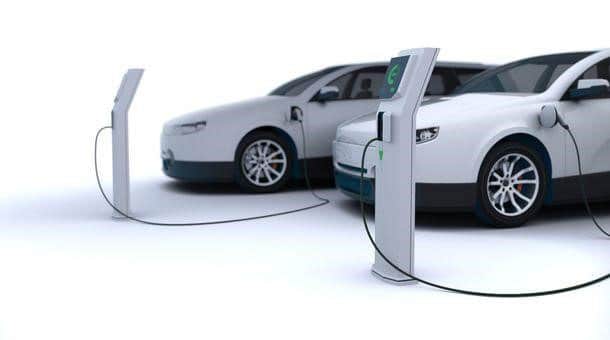In a time when the world is striving to reduce greenhouse gas emissions to protect the environment and the environment, convert to electric cars or all electric vehicle conversions have been on the rise. It’s no news that the U.S.
The Environmental Protection Agency (EPA) recently announced stricter regulations on vehicle emissions and a ban on using diesel-powered vehicles within specific areas.
With the current environmental crises and the rigours of diesel-powered vehicles, an EV conversion is the most practical way to ensure that cars can thrive soon.
The concept that electronic vehicles (EV) conversion seems to be fairly new in popular consciousness. This is why there’s been plenty of doubt about its validity recently.
Many people are sceptical about its validity of it. Some also question whether it’s legal to drive in specific geographical locations.
Also Read:
Top 5 Electric Cars in 2023
What is the Electric car Conversion?
Conversion to electric vehicles is a revolutionary method of replacing a car’s engine motor and drivetrain parts with an electric motor and a large battery bank. Ultimately, it creates an all-electric vehicle that is free of emissions from fuel.
As appealing as it is, knowing the procedure and purpose behind the electronic conversion is crucial before beginning the EV project. By understanding this, you will have more clarity about the outcomes you can expect.
Why should you convert to electric cars?
- There are many motives to convert your vehicle to electric. Here are a few of the most commonly used ones:
- The main benefit is the massive reduction in emissions. The more electric vehicles on the roadway, the lower emissions from the tailpipe. This, in turn, will result in cleaner air for your city.
- Another advantage is the low operating cost. With prices for fuel at record highs, driving your car with electricity will cost you less. This means that you quickly recuperate the cost of the electric car kit you’d have spent.
- Since there are fewer components in an electric vehicle compared to a traditional car with the Internal Combustion Engine (ICE), there’s much less wear and wear and tear. This results in lower maintenance expenses.
- Since electric vehicles don’t use fossil fuels, you won’t be required to deal with the hassle of regular pollution checks and purchases of PUCs.
- The Delhi-NCR government has mandated that electric and diesel cars are scrapped after 10 and 15 years and vice versa; there’s no legally binding limit for an electric vehicle.
What is The Electric Cars Conversion Process?
Identifying the Right Vehicle
The process of conversion begins with selecting the best vehicle to convert. To qualify, the car to be converted must be powered by diesel or petrol.
Substituting And Extracting The Drivetrain
The actual conversion process begins. Think of it as an operation during which organs are removed and replaced by new ones. For EV conversion, the fuel tank, the engine and gearbox, the starter, and the other intricately related hardware are just like the organs, which are then removed.
When the car is unloaded, the removed parts are replaced by new components for the drivetrain, including the electric motor and batteries. The result is that your vehicle will get a new life!
Deciding on the appropriate power type/source
The DC system is the most commonly used alternative for replacement. However, an AC system is also an alternative. The choice of motor size will be largely based on the car’s weight and size. However, performance preferences may also play a role.
Selecting the Right Battery
A battery will naturally power the motor. Lead-acid batteries are a common choice for installation, but they generally have a limited operating range when charged. Lithium cells can also be an alternative with more extensive performance, not to mention they’re smaller and lighter.
The number of batteries needed will depend on the dimensions of your car. Larger batteries, in general, require more space to accommodate.
Configuring the Power And Charging System
A reliable charging system is required to charge the batteries using an electrical circuit to regulate the energy flow between the battery, motor wires, the battery, and other complex components. To make the most from this EV conversion, you must control your car’s heating, air conditioning or power steering units with other equipment. It is also essential to remember that this might be a cost to install.
Examining
Once your car is modified, The automotive technician or specialist will evaluate your car’s performance and safety before giving the go-ahead for the wheels on the road.
Converting to an electric vehicle costs approximately $6,000 for the parts and between $1,000 and $3000 for installation and batteries. A more costly retrofit may cost you at least $20,000. For all this, you’ll receive an emissions-free car that will cost you just about a couple of cents per mile. Electric cars will also be more reliable and require far less maintenance than a traditional ones.
What vehicles are ideal for EV conversion and why?
The most suitable vehicles to convert an electric vehicle provide enough space for batteries and larger components of the drivetrain so that you’ll have a wider performance and more options.
How long does it take to convert my car?
Because the work involved in the conversion to EV is a lot of moving components and configurations, the estimated time to convert your vehicle to electric takes three to six months.
What’s the time to charge electric vehicles converted to electric?
A- Most manufacturers of kits for conversion to electric state that it takes 5-6 minutes to charge batteries. In addition, many kits come with quick charging facilities that allow the battery to reach 80% charging within less than one hour. The timing of charging will depend on the conversion kit utilized.
A battery-powered electric-powered vehicle (EV) convert project has many moving parts that need time and money. If you’re considering ordinary car to convert to electric cars , be prepared to invest more in batteries and other components of the drivetrain.







